Chinese President Xi Jinping, presents the heads of the People’s Liberation Army Academy of Military Science with the military flag © Nrf
China’s commercial attack on little Lithuania is as unjustified and strangely-motivated as we’ve come to expect from modern day Beijing, which seems to thrive on illogicality. The row is a vibrant display of selfless Lithuanian courage and ruthless Chinese bullying. Contrast them and you’re drawn to the inevitable conclusion that it could be wiser to eat some Cepelinai (it means zeppelins, because of their dirigible-like shape) or perhaps some Kepta Duona or maybe some Šaltibarščiai (they’re all traditional Lithuanian dishes) than, say, Peking duck or sweet-and-sour pork with noodles. In other words, stand up for brave little Lithuania, rather than supporting the aggressive regime of Xi Jinping in Beijing. The oddest thing is that the disagreement is over something most other countries would see as a trifling matter. It is trifling by any normal standard, anyway. We must remember that Lithuania has a population of just 2.6-million , while China has almost 1.5-billion, or more than 546 times as many. Lithuania is geographically small, too: just 65,3002 km. China, with 9,596,960 km², is quite a lot bigger. Roughly 147 times as big, in fact. The point I’m trying to make is that this is a very unequal contest and little Lithuania is fighting it largely alone, apart from some fairly half-hearted words of sympathy and a little legal action from the European Union. Even China itself makes a big thing of the size differential. In its English language Global Times, the Chinese Communist Party expressed its outrage at Lithuania’s audacity, describing Lithuania as being: “just a mouse, or even a flea, under the feet of a fighting elephant.”
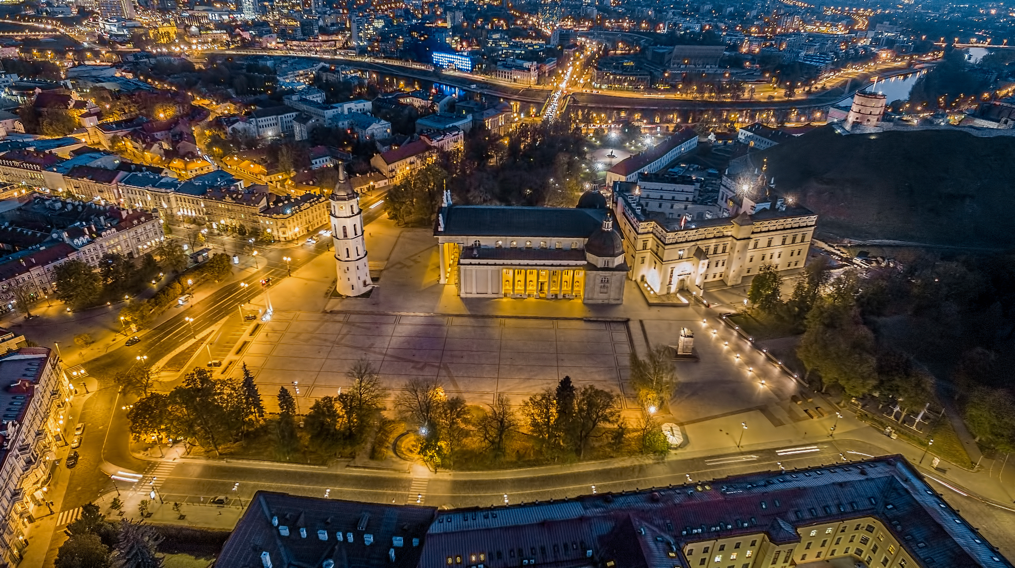
Elephants and fleas, eh? Well, the flea called chimaeropsyllidae can only live on elephant shrews, but that’s not the same thing at all, of course. Elephants can certainly suffer from fleas of the normal blood-sucking type, and if severely irritated by them they will eat less proper food, apparently, affecting their growth rates, but this really only matters in the case of elephant calves. Sucking an elephant’s blood (as fleas will do, being members of the siphonaptera family) won’t do it any good but as they don’t suck up much at one go, they’re less dangerous and less of a threat to elephant life than some other parasites that consume rather more. But even fighting elephants can become itchy and need a good scratch. And fleas can certainly spread disease; they were responsible in the main for the spread of the bubonic plague in the 14th century (it returned in the 18th century) by carrying around the bacterium yersinia pestis, and it’s been the cause of other infections probably before and certainly since.
Getting back to stories about huge and generally wicked monsters and tiny heroes, there are legends a-plenty about wicked giants being slain by bold (and normally quite small) adventurers, including one about Galigantus. He is killed (in its usual source, which is the Cornish folklore story) by the legendary Jack the Giant Killer, thus freeing the many knights and ladies Galigantus holds captive and also restoring a duke’s beautiful daughter, who had been turned by a sorcerer into a white hart. Jack marries her (of course) and they all live happily ever after, as people tend to do at the end of fairy stories. In the legends, Galigantus is Jack’s final giant.
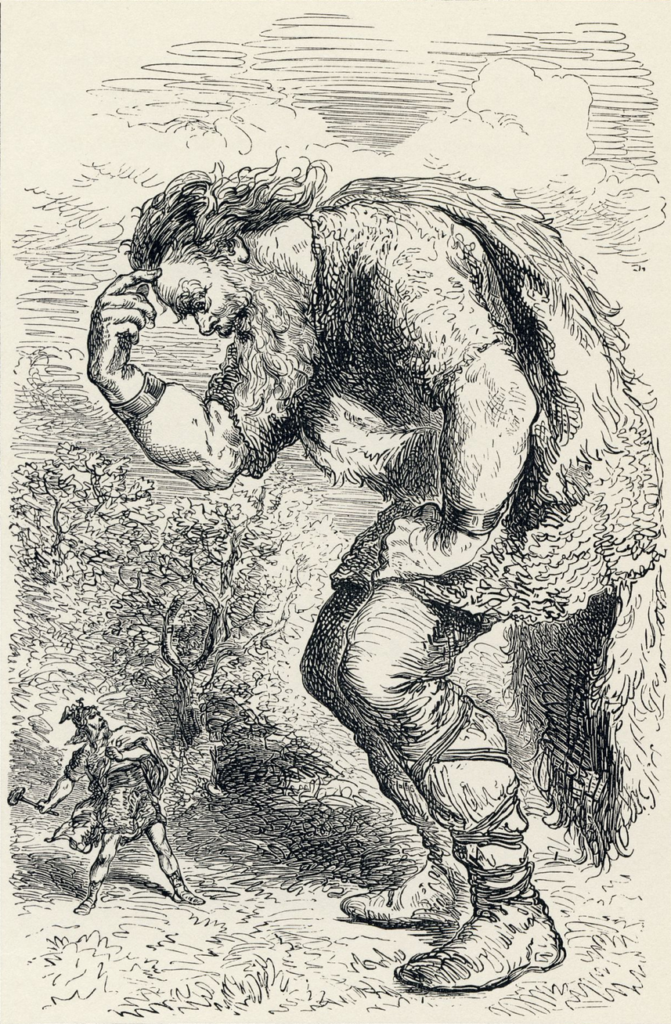
Another of Jack’s large victims was supposedly the two-headed Thunderdell, who utters the famous words “fee fi fo fum” (they seem to be nonsense words and consequently are often spelled in a variety of different ways) as he approaches. He also says it – at greater length – in another fairy story, Jack and the Beanstalk, which is often performed on stage in the UK as a children’s pantomime at Christmas, and Shakespeare even puts the words into the mouth of Edgar in his play, King Lear, when Edgar, feigning madness, says to the King, “Child Rowland to the dark tower came. His word was still: fie, foh and fum. I smell the blood of a British man.” Shakespeare was clearly quoting something that he knew would be familiar to his audiences, so the story of Jack the Giant Killer was apparently well known. Sadly, Europe has no Jack the Giant Killer today to tackle the enormous and threatening giant, China, as legend says he once tackled the likes of Thunderdell and Galigantus, along with others such as Cormoran, Blunderbore and Rebecks.
GIANTS AND TIDDLERS
The reason for China’s somewhat overbearing and seemingly irrational approach to Lithuania is an office. Yes, that’s right: one rather small and insignificant office. China clings to its belief that there is just one China and that therefore Taiwan doesn’t (or shouldn’t) exist.

That attitude was perhaps more understandable when China was still young, at least in its modern form, because it was home to the Kuomintang (KMT), the Communists’ old enemy for the country’s rule, and the Kuomintang, who were not good or wise rulers, but who were devoted to capitalism, were still hoping Communism would fail and they’d get back into power. It seems very unlikely, however: the KMT were not hugely popular, and their rule wasn’t a happy time for ordinary people. Beijing seems to have slightly overreacted when Lithuania agreed to allow Taiwan to open a representative office in Vilnius. To judge by China’s furious and frantic response to this you would have to imagine that Vilnius is threatening to bomb Beijing. It is not, and the office in question is a tiny place: 16B, J. Jasinskio Street, Vilnius, to be precise, with a reception desk decked with vases of flowers and, behind it, the flags of both Lithuania and Taiwan. It hardly looks like something over which to start a war. China, however, is extremely firmly attached to its “One China Policy” and it has been stepping up its attempts to bully other countries into breaking any ties they may have with Taipei, even if all they are doing is admitting that Taiwan exists. China now blocks not only Taiwanese products from being imported but also any products made anywhere in the EU that may contain a part, however small, of Taiwanese origin, or whose manufacture involved the use of machinery made there. That’s tricky, because Taiwan, you see, is the world’s largest producer of computer chips, and in our ultra-connected world, computer links are vital. It’s very hard to buy any modern electronic product, from a computer to a television to a lawn mower, an electric car or an espresso machine that doesn’t contain, at its heart, something produced in Taiwan. Taiwan also produces such things as USB memory sticks, mobile phones and – believe it or not – bicycles (coincidentally, under the trade name ‘Giant’). Tyres for motor vehicles are another Taiwanese product.
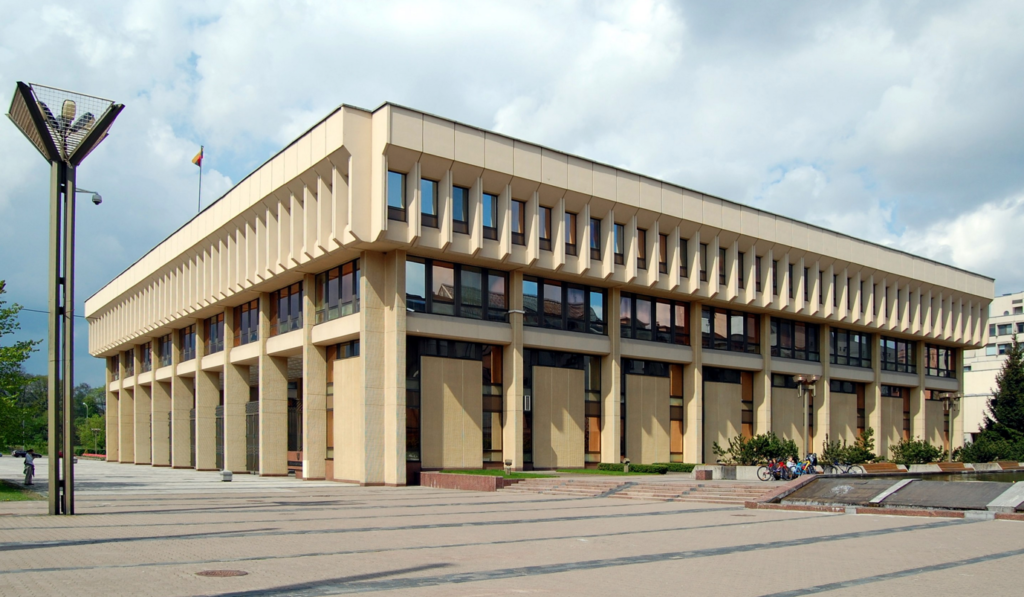
As for the current impasse concerning trading relations, China says the blame lies entirely with Lithuania. This is a claim from the Vladimir Putin playbook of quotable untruths, like his claim that the West started the dirty war he’s fighting in Ukraine and that Russia’s invasion was “self-defence” against aggression by the United States and pursued in order to eradicate Nazis. It’s worth noting that Lithuania’s parliament has designated Russia “a terrorist country” and its actions in Ukraine as “genocide”. According to the Democratic Underground website, the Lithuanian Seimas tweeted on Tuesday that its members had passed the resolution unanimously making Lithuania the first country to declare Russia a perpetrator of terrorism, according to Ukraine’s Centre for Strategic Communications and Information Security. But we’re not talking about the tyrant Putin; we’re talking about another apparent tyrant, Xi Jinping. In China’s view, the blame for the breakdown in relations with Lithuania lies squarely with the Lithuanians. “We urge the Lithuanian side not to turn back the wheel of history,” the CCP wrote, “and not to make wrong decisions. We also believe that all countries in the world, including the EU, will make a fair judgment on Lithuania’s attempt to undermine the sovereignty and territorial integrity of China.” Given the size disparity I mentioned, little Lithuania would not seem to pose much of a threat to the territorial integrity of mighty China. If you want to see territorial integrity under threat, just take a look at what Putin’s forces are doing in Ukraine.
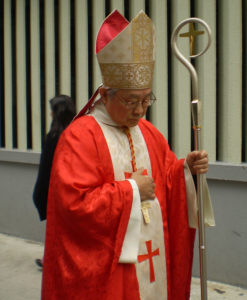
There, the Ukrainian government’s territory is under very real threat from a rapacious power that wants to take the place over completely, which Beijing at least seems to understand. Far fewer Russian or Ukrainian soldiers would be in their graves or awaiting burial, however, if someone had simply opened a representative office somewhere instead of starting a war, even if you call it a “special military operation”, rather than a war. Probably. But China dismisses criticism from any quarter as unacceptable, including its arrest of Hong Kong’s 90-year-old cardinal Joseph Zen Ze-kiun and three others. They were charged with “colluding with foreign forces” (a brigade of battle-weary bishops, perhaps?). Criticism from the EU and the United States was dismissed by Beijing as “a foolish political show”. China said they deserved to be punished for opposing China’s view.
But let’s get back to Taiwan and China’s row with Lithuania. The woman in charge of managing the Lithuanian end of this most uneven spat is the Prime Minister of Lithuania, Ingrida Šimonytė, an economist and former finance minister who has been a member of the Lithuanian Seimas (parliament) since 2016. She’s very much a local girl, too, hailing from the Lithuanian capital, Vilnius, where she was born (in 1974) and educated and from whose university she gained her degrees. She is said to have a particular gift for mathematics. Politically, she is an Independent, although she has had an affiliation with the centre-right Homeland Union.

In the current stand-off with mighty China, Šimonytė has shown remarkable courage, although she and her government have been condemned by the Beijing-leaning Global Times: “Citing a corporate source responsible for negotiating exports, Lithuanian media outlet Delfi said the country’s grain exports are now being refused by the local authorities of China’s Taiwan island, citing specific quality requirements.” It’s nonsense, of course, since there’s nothing wrong with Lithuanian agricultural produce except for the fact that it comes from Lithuania. But gentle words from China have always disguised other thoughts and feelings. British journalist Robert Payne hoped throughout his dinner with Mao, at the shack that passed for his headquarters at the time, that some word or gesture would reveal the real man behind the “kindly host” mask. It came closest towards the end of the meal; Payne wrote in his book ‘Eyewitness’: “Suddenly the electric light went out and in the darkness Mao Tse-tung (that was how it was written at the time of publication in 1972, before it was changed Mao Zedong) called for oil lamps. As the lamps were lit, there came a brief moment when his huge shadow went racing across the wall, rippling over paper windows and crowding the ceiling; and seeing the shadow, we thought we had seen the real Mao who had eluded us throughout the dinner.”
WHAT’S BEHIND IT ALL?
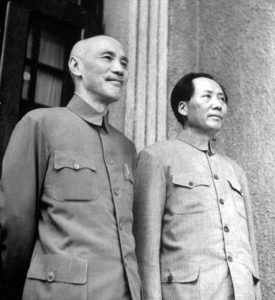
Mao wasn’t frightened of American intervention on the side of Chiang Kai-shek, either. “I asked him” Payne wrote, “what the Red soldiers would do when confronted with heavy tanks supplied by the Americans. ‘We’ll tear them apart with our bare hands,’ he said, and threw out his hands and feet like a Chinese boxer.” Payne told me years later that it was at that moment that he knew for sure that Chinese Communism would triumph. Šimonytė must be hoping in won’t on this occasion.
The Global Times makes clear its own pro-Beijing politics in its style of reporting the story: “If the Lithuania’s calculation was to manipulate the Taiwan question by denying the one-China principle,” runs the on-line article, “the small European country is destined to hit the wall, because it was clearly a folly (of) miscalculation. It’s now known to all that Lithuania has caused a self-made awkward position by playing with fire on (the) Taiwan question. And, it will find itself getting burnt in the fire.” There’s nothing like a spot of unbiased reportage, is there? And that was nothing like a spot of unbiased reportage. The CCP-run Global Times is pure, unadulterated propaganda.
The website FP (for Foreign Policy) has pointed out, quite reasonably, that in technical terms Lithuania hasn’t breached the “One China” rule demanded by Beijing, although it seems to have left itself open to Chinese coercion. FP argues that those so targeted should band together and adopt a policy allied to NATO’s Article 5 – effectively, that an attack on one is an attack on all – with a rule which says that an attempt at coercion on one has similarly wider ramifications.
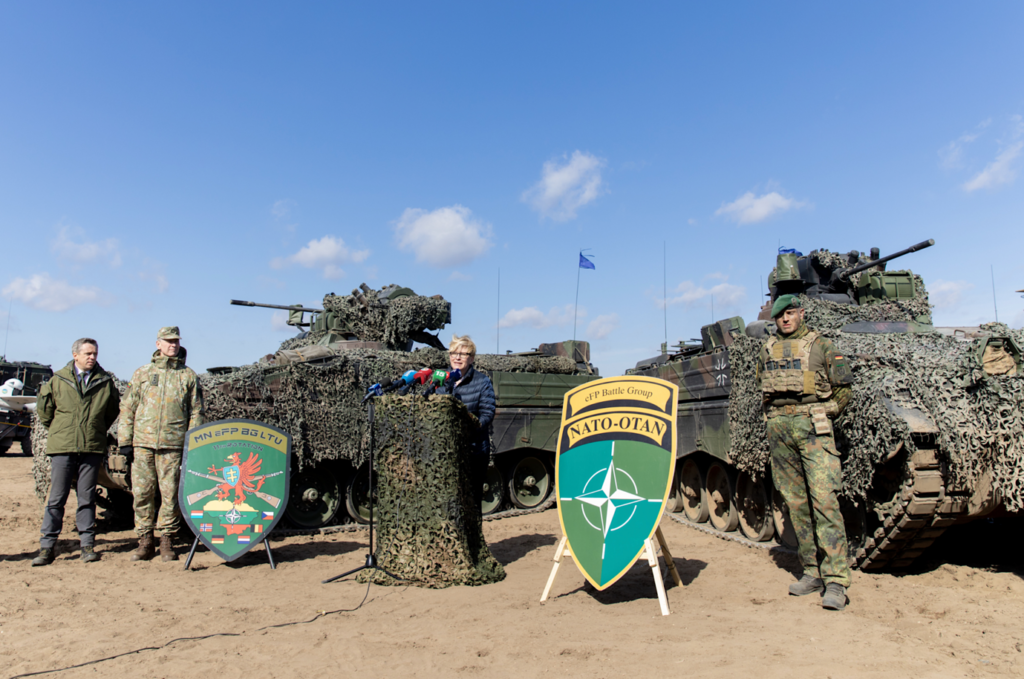
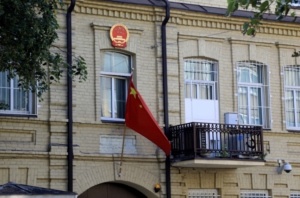
The FP website appears to suggest that this whole affair has less to do with any fears in Beijing of Lithuania undermining the geographical integrity of China and rather more with China’s attempt “to gain a political foothold in Central and Eastern Europe.” In other words, it all comes down to trade, rather than hurt national pride. As so often in these mercenary times, money – and the love of it – underlies most political events. The office in Vilnius may bear the word “Taiwanese” in its title, but its proper full name is “Taiwanese Representative Office”; it doesn’t call itself an embassy and never has done. As FP points out, the United States has an “American Institute in Taiwan”, and other nations have similar arrangements without, it seems, offending Beijing too much. There is more to this argument, however: Lithuania withdrew from China’s “17+1” cooperation agreement for Central and Eastern European countries because of the way in which China used it to exert diplomatic influence (for which, read “pressure”). Beijing struck back by withdrawing its ambassador from Vilnius, having a detrimental effect on trade and suspending rail travel between the two countries. This may not have actually affected Lithuania very much as yet, but it has served as a warning to other, larger European countries, such as Germany, France and Spain, that they could see their trade with China damaged or demeaned. China does not seem to believe in using gentle persuasion when simple threats will often do the job. Why use a feather duster when it’s just as easy to wield a sledgehammer?
DON’T CRITICISE – OBEY!
China’s somewhat hysterical reaction to Lithuania allowing an office to be set up representing Taiwan has been described – reasonably, I think – as a “diplomatic tantrum”. Like many tyrannies, China can be extremely childish. China’s Foreign Ministry said Lithuania “brazenly violates” links between the two countries and has warned of “potential consequences”, which drew strident condemnation from the US State Department, whose spokesperson, Ned Price, said: “We support our European partners and our allies as they develop mutually beneficial relations with Taiwan and resist the PRC (People’s Republic of China)’s coercive behaviour.” He added that: “Each country should be able to determine the contours of its own ‘One China’ policy without outside coercion.” China, we shouldn’t forget, has been breaching the norms of civilised behaviour in quite blatant ways. It was its vicious treatment of the Uighur people of Xinjiang, in the country’s northwest, that upset a lot of China’s potential allies, as well as its use of the Uighurs held in its so-called “re-education” camps (which seem to be more like concentration camps) as forced and cost-free labour to produce saleable goods.
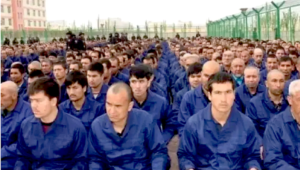
It would seem to be trying to eradicate Islam, including by the demolition and total obliteration of Uighur mosques and cemeteries, several of which have been turned into parking lots. China appears to believe that it can behave in any way it likes and treat people just as it pleases without facing any consequences, and it can also rewrite history, but that really doesn’t work in the longer term. The ever-faithful pro-CCP newspaper, the Global Times, lays all the blame at Lithuania’s door. “If the Chinese government does not take action, it may leave the rest of the world a false impression that countries that offend China over Taiwan will not get punished,” it stated. The outlet’s editor-in-chief, Hu Xijin, slammed Lithuania as a “crazy, tiny country” and a “U.S. running dog” in an article (I haven’t seen the expression “running dog” being used for years, not since the dying days of the old Soviet Union). He said the Baltic country will “eventually pay the price.” Lithuania already is paying, of course, but it considers that standing up for its principles is more important that kow-towing to Xi Jinping. Lithuania has described Beijing’s treatment of the Uighur people as “genocide”. Maybe in Hu’s view all of that is crazy, but most other countries consider it heroic, however unwise. China really isn’t making many friends here.
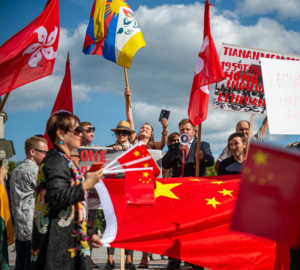
Lithuania has further annoyed the CCP by saying it backs Canada in condemning the death sentence passed on Robert Schellenberg. Schellenberg was arrested in 2014 on alleged drugs offences, sentenced to death in 2018 and had his sentence upheld last August. Outside of China, many think the arrest and trial are a response to the United States’ arrest of Meng Wanzhou, who is accused of doing business with Iran. Schellenberg now faces the death penalty, although he claims he was just a visitor passing through who was framed by a criminal gang. China also got very angry (it doesn’t take much to make China angry, it would appear) for inviting a representative from Taiwan to speak in the Lithuanian parliament, the Seimas, in a debate about the spread of the coronavirus. Ambassador Andy Chin, who chairs Taiwan’s Parliamentary Committee on Foreign Affairs, attended to participate in the discussion, which infuriated Beijing so much that the Chinese Ambassador, Shen Zhifei, has demanded an explanation. In China’s view, it seems, a country must ask Beijing’s permission before inviting a foreign politician to speak to its democratically elected parliamentarians.
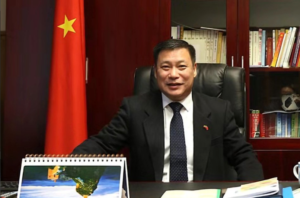
Beijing seems not to have much time for democracy and none at all for the principle of ‘independence’. According to Nury Turkel, whose brilliant new book ‘No Escape’ gives a first-hand account of being a Uighur in today’s China, the Chinese introduced all sorts of crimes with which Uighurs could be charged: “having a long beard”, for instance, or “using the front door more often than the back door”.
No, I don’t understand that one, either, but I promise I’m not making it up. “Reciting the Qur’an during a funeral” could get you locked up, too. But the real reason, in Turkel’s eyes, is that the Uighurs simply “aren’t Chinese enough”.

A representative office for Taipei has not won universal approval, even within Lithuania. The country’s President, Gitanas Nausėda, says he wasn’t asked before the decision was announced. However, in an exclusive interview for Decode 39, a political website, it was stressed that Foreign Minister Gabrielius Landsbergis had made clear that: “The Lithuanian government stands firmly by its decision to welcome the opening of the Taiwanese representative office. We look forward to developing our relations with Taiwan in the areas of business, science and technology, and culture,” he added, “[as well as] more contacts between Lithuanian and Taiwanese people who are bound together by common values, vibrant and open societies based on innovation.” It’s a bold decision for a small country to take against a giant renowned for being ruthless and uncaring towards others.
STANDING UP TO A GIANT
The Uighurs’ home territory, Xinjiang, accounts for around a sixth of China’s total land area, yet it’s home to just 2% of its people, and even then, the mainly Han Chinese who seem to be in charge don’t want to give jobs to Uighurs, so there is poverty and hunger, even in Kashgar, once a major hub on the old Silk Road, where there is still vast mineral, oil and agricultural wealth to be had that is not being shared with the Uighurs. One thing is certain: China may be taking these uneven-handed and discreditable steps in the name of Communism, but it’s not a form of Communism that would be recognised by Karl Marx. Marx wanted equal opportunities for everyone and a chance to share the wealth. Xi Jinping seems to want to be seen as an emperor of old, pampered and obeyed in everything and never, ever having his decisions questioned. In other words, he should be considered “son of heaven” and “autocrat of all under heaven”. Not a bad job if you can get it but hardly conducive to the sort of egalitarianism favoured by the likes of Karl Marx, Friedrich Engels, Vladimir Lenin, Zhou Enlai or – dare I say it – Mao Zedong. Xi has more in common in some ways with the 4th Qing emperor, Kangxi, although he lacks the magnificent moustache, or even with the heavily bearded Qin Shi Huang.
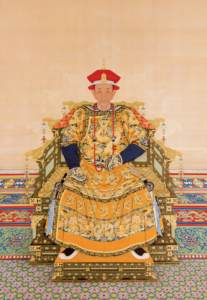
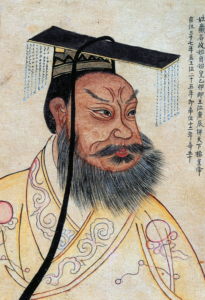
The great German Communist writer Bertolt Brecht didn’t set much store by imperial power. “The finest plans are always ruined,” he wrote in his play ‘Mutter Courage und ihre Kinder’ (‘Mother Courage and her Children’), “by the littleness of those who ought to carry them out, for the emperors can actually do nothing.” It is basically an anti-war play. Xi seems determined to disprove Brecht’s assertion about the power of emperors. He wants to be seen to be above the law and not subject to it. In February, a Japanese diplomat was arrested just after eating lunch in a Beijing restaurant. He was then held for several hours by secret police officers who ignored his diplomatic identity card and who refused to let him telephone the Japanese embassy. The Vienna Convention on Diplomatic Relations clearly states that diplomats should be immune from any form of arrest, but China ignored Japan’s demand for an apology and insisted that the diplomat had been engaged in activities “inconsistent” with his diplomatic rôle, normally seen as a euphemism for spying. Diplomats in China are now uneasy, but China was apparently sending a message: talk to our officials but not to the Chinese people. Presumably Beijing thinks the ordinary people don’t have opinions, or, if they do, that they should be silenced. Whatever the overriding politics are, they are not Marxist, whatever Xi may claim and perhaps even believe.

The EU is not happy with the current situation and in January it filed a suit at the World Trade organisation over China’s sanctions against Lithuania, with the backing of the United States, Australia, Britain, and Japan. Apart from its provocative statements about Lithuania, China has warned large multinational corporations to cut their ties with the Baltic state or risk being targeted by China with further penalties. According to Lithuania’s vice-minister for foreign affairs, Mantas Adomenas, some companies have cancelled contracts with suppliers in his country, and he told Reuters that China: “have been sending messages to multinationals that if they use parts and supplies from Lithuania, they will no longer be allowed to sell to the Chinese market or get supplies there.” Clearly, that would impact seriously on any company engaged in global trade. MSN News reports that Adomenas has explained how Chinese authorities were further preventing exports to Lithuania by such measures as stopping export credit guarantees for goods being traded into Lithuania from China. Will it work? Not immediately, it seems. “We will not bend to this pressure,” he said. “What we decide to do, by calling Taiwan Taiwan is up to Lithuania, not Beijing.” According to France 24, the very few Lithuanians currently living in Taiwan have suddenly found themselves extremely popular, even getting applause when they enter a restaurant and being offered free taxi rides. Taiwan’s President, Tsai Ing-wen, was asked which country she would most like to visit when the pandemic has gone. She didn’t hesitate. “I think Lithuania is a very brave country,” she said. “I would like very much to go there.” She would be made very welcome and I’m sure she’d like it.
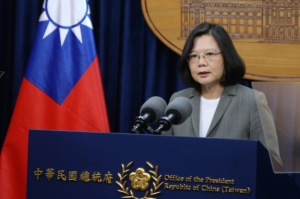
For Lithuania, the affair is deeply personal; it was the first member of the old Soviet Union to break away from Moscow’s control, back in 1990. Members of the Seimas applauded when it was formally announced that it would no longer be the Lithuanian Soviet Socialist Republic but from then on it would be called the Republic of Lithuania. Some Lithuanians have accused Russia of bullying, too, making their country the target of hostile acts by both the bear and the panda, figuratively speaking. Not that either country would admit to caring enough about Lithuania to bother. According to an article in The Economist, nationalist Chinese commentator, Hu Xijin, has written on his social media account that China shouldn’t allow itself to become annoyed by Lithuania. “It’s a snotty little country,” he wrote, “just not worth it.” If so, why comment at all? This is a fairly typical Beijing ploy: denigrate your supposed “enemy” by playing down its importance to you or anyone else. The Chinese population, denied free access to many media sources may even believe it, not having the possibility to analyse what’s really happening, since the people are denied access to anything not produced by the Beijing propaganda machine. Lithuania, however, has seen what can happen when a large and irresponsible neighbour decides to take your country over and silence anyone who voices criticism. Stalin’s Russia did that to little Lithuania and its current attack on Ukraine has raised the spectre of Moscow trying to get back all the satellites it has lost, including Lithuania.
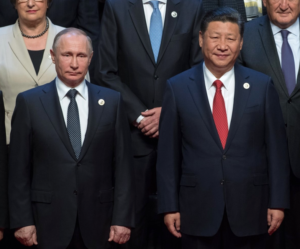
China’s treatment of the Uighurs and the imposition of its draconian ‘national security’ law in Hong Kong mean that it’s not only Taiwan that now looks askance at Beijing. Most of the countries in the free world are similarly nervous about China’s ruthless behaviour.
The Economist quotes Eric Huang, who heads Taiwan’s controversial office in Vilnius, the centre of the trouble, describing China’s treatment of Lithuania as “a new stage for China’s coercion of the world.” Beijing seems to find it hard to distinguish between the words ‘commerce’ and ‘coerce’. Just remove a couple of ‘M’s and there you are.
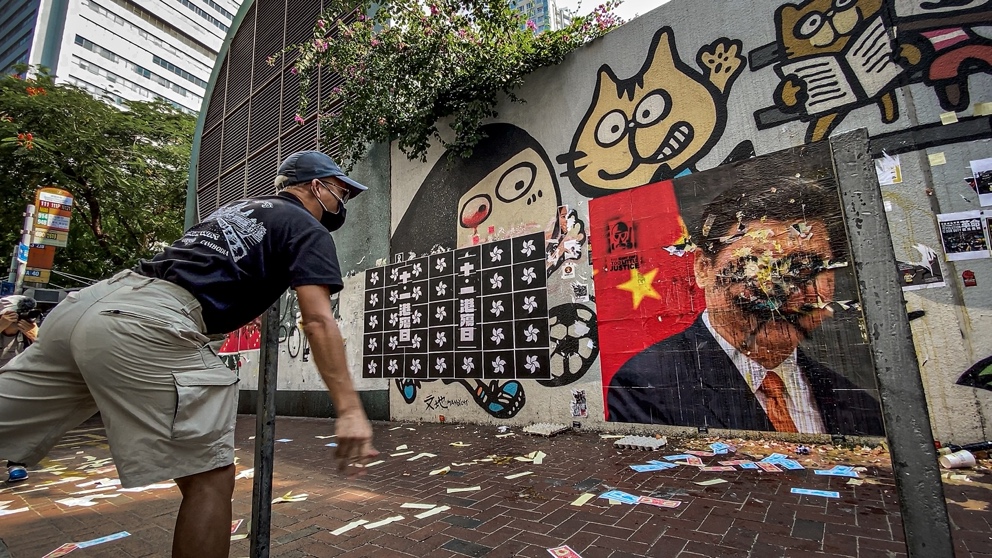
Unfortunately, in the real world there are very few examples of Jack the Giant Killer, however covetous and implacable the giant in question my be. Well, if you’re going to make enemies of a country, why not choose two of the largest and most irresponsible the world can offer? Giants have been a part of our folklore for centuries; they’re even mentioned in the Book of Genesis (Chapter 6, verse 4): “There were giants in the earth in those days; and also after that, when the sons of God came in unto the daughters of men, and they bare children to them, the same became mighty men which were of old, men of renown.” In some of the old tales, the giants ate people, as other legendary monsters had supposedly done, along with domesticated animals.
It would clearly be difficult to have much of a deleterious effect on mighty China. It is far too big and powerful to need to terrorise others with its all-too-credible threats, and yet it does. However, Taiwan is to help Lithuania to develop its semiconductor industry, which would provide yet more competition to China’s own industry. Lithuania has already shown its bravery in the face of menace, just as Jack the Giant Killer did in the stories. Perhaps by out-performing it in some vital industry, the giant can yet be brought to heel. And we’ll all live happily ever after…?

